
Table of Contents
Landmarks

Letter from the General Editor
The Library of Arabic Literature makes available Arabic editions and Englishtranslations of significant works of Arabic literature, with an emphasison the seventh to nineteenth centuries. The Library of Arabic Literaturethus includes texts from the pre-Islamic era to the cusp of the modernperiod, and encompasses a wide range of genres, including poetry, poetics,fiction, religion, philosophy, law, science, travel writing, history, andhistoriography.
Books in the series are edited and translated by internationally recognizedscholars. They are published in parallel-text and English-only editionsin both print and electronic formats. PDFs of Arabic editions areavailable for free download. The Library of Arabic Literature also publishesdistinct scholarly editions with critical apparatus and a separateArabic-only series aimed at young readers.
The Library encourages scholars to produce authoritative Arabic editions,accompanied by modern, lucid English translations, with the ultimategoal of introducing Arabics rich literary heritage to a general audienceof readers as well as to scholars and students.
The Library of Arabic Literature is supported by a grant from the NewYork University Abu Dhabi Institute and is published by NYU Press.
Philip F. Kennedy
General Editor, Library of Arabic Literature

Foreword: In Praise of Pretense
By Abdelfattah Kilito
It is thanks to al-Hamadhnal-arrs modelthat the character of the eloquent rogue makes his sudden appearance in Arabic literature. The Maqmt (Impostures) genre features a protagonist who is at once a man of letters and also a shameless beggar and vagabond who engages in roguery without compunction. Imposture is in his blood; it is second nature to him.
In his preface, al-arr praises the illustrious predecessor in whose footsteps he follows. And yet he is clearly ambivalent: he has his hero Ab Zayd al-Sarj say he is better than al-Hamadhns hero Ab l-Fat al-Iskandar. And for seven centuries readers have accepted this claim, and affirmed al-arrs superiority. An antagonistic quality permeates the Maqmt of al-arr, who effectively stole the glory from al-Hamadhn, the very founder of the genre who fell into oblivion and who would not be reinstated till late in the nineteenth century. The imitator had eclipsed the originator: al-arrs Maqmt proved, if proof were needed, that a copy could surpass the original.
A successful imitator, however, is not always let off easy. Attempts are made to find flaws in his work, instances of plagiarism are supposedly discovered or unearthed, and sometimes he is even accused of having plundered the work outright. At least, that is what happened to al-arr, who was alleged not to have authored his Maqmt and so the one who had devoted his work to the impostures of Ab Zayd came to be treated as an impostor himself. In fact, a curious rumor spread in Baghdad soon after the Maqmt were published. Yqt records it in his Dictionary of Learned Men and it has all the makings of a first-rate novel: during an attack on a caravan, some bedouin had seized as part of the booty a pouch belonging to some Maghribis; they had put it up for sale in Basra, al-arr had bought it and gotten his hands on a manuscript that was in it, specifically the manuscript of the Maqmt bearing his name....
The rumor died out after a time, but one argument advanced by the rumormongers remains troubling: their assertion that they did not recognize in the Maqmt al-arr claimed were his the style or mode of expression of his previous works. This led them to conclude that the Maqmt were written by a traveler, one originally fromand why not!a western part of the Muslim realms. But must a writer be condemned to the stranglehold of a single style, and never permitted to write differently? Is he to be a hostage to his style, to intractable destiny?
In any event, it has to be conceded that al-arrs style in the Maqmt , already distinct from al-Hamdhns, differs from that of his earlier writing, as the enviers maintain. Severed from himself, one might say that al-arr is several . In one interview, Borges cites the following declaration by Whitman: I contradict myself, I contain multitudes. This statement could apply just as easily to al-arr, but also more aptly to Ab Zayd al-Sarj, his protagonist, whose being is nothing but an uninterrupted series of semblances, of refractions. This shimmering is characteristic of Ab Zayd, of his universe, and of the way in which the book is composed.
Chased out of his native city of Sarj by the Crusaders, Ab Zayd leads a vagrants life, traveling far and wide. During these wanderings, he lives by his wits and relies mainly on the alms he is given in appreciation for his talented oratory and literary performances. People do not provide assistance out of compassion, but because they are essentially impressed by his command of literary materials and by his rhetorical powers. He is a beggar poet (as was Homer, according to one ancient legend). In the Maqmt , roguery is an art, a genre , which is to say a comportment, a way of being and thinking, indeed a distinction, a style. A mixture of genres, we should add, as the art of literature went hand in hand with the art of deception. In this world of variegation and varicoloration, literature therefore presents itself as an imposture. Ab Zayds first victims are specifically men of letters. Surreptitiously introducing himself into their company, he manages over and over to charm them and to collect their gifts. Initially, they reject him on account of his pitiful appearance and his miserable attire, but the moment he opens his mouth he subdues them, their contempt dissipates, and revulsion turns to admiration.
Ab Zayd never appears twice in the same guise. He changes appearance at will, showing a new face on every occasion, an actor taking on various roles: now a blind man, now a lame one, a decrepit old man, a jurist, a hemiplegic, a shrewd litigant, a preacher, a seller of charms... From one episode to the next, his repertoire changes and inevitably the themes of his disquisitions do too. More often than not, his role-playing is so skillful that at first he isnt recognized by the narrator al-rith ibn Hammm, who meets him in each and every setting, following him like a shadow. Ab Zayd is several, he has no choice but to be untrue to himself. In each of his performances he wears a new mask; his identity, provisional and fleeting, is at every instant a borrowing, an impersonation. But who is he in reality? It bears repeating that in some ways he is just a succession of countless semblances. We should not be suprised by the fact that he is compared to the moon, the orb of night that perforce yields to the orb of day. But is there a sun in al-arrs Maqmt ?
We should mention the explanation Ab Zayd provides as justification for his various postures. If we are to believe him, the passage of time is to blame, the nights ( al-layl ), the days ( al-ayym ): in a word, dahr , Time itself, the prime controller of lifes vicissitudes and reversals of fortune. Dahr governs all the events that impact human existence. Sometimes dahr shows its magnanimous side: in some episodes Ab Zayd is treated well by rulers and he struts about like a lord, surrounded by servants and by obvious signs of affluence. But more often, dahr is synonymous with adversity and setback: it cant be trusted, it is inherently traitorous, fickle, reversing circumstances, making promises it will not keeplike lightning flashes not followed by rain. If dahr is the paragon of imposture, no surprise then that Ab Zayd is made in its image, as al-Sharsh, one of al-arrs commentators, has observed: he says that Ab Zayd has the same traits as dahr , is a metaphor for it, an incarnation of it.





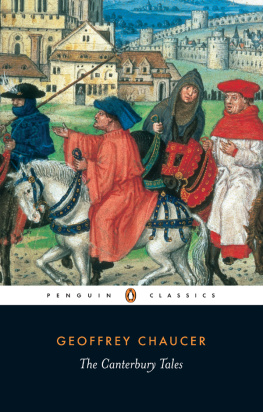
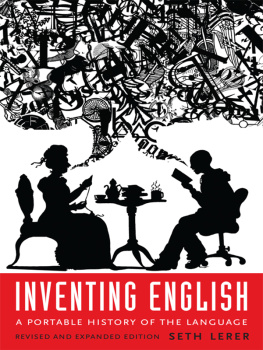
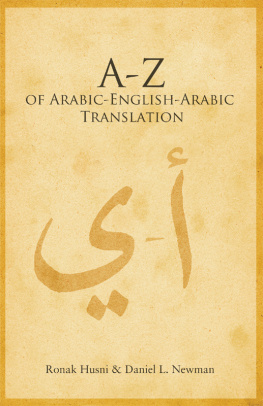

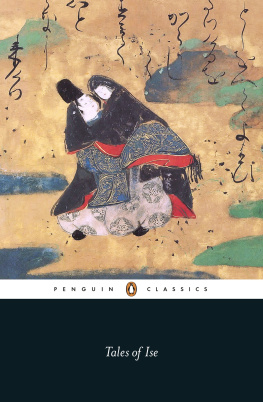


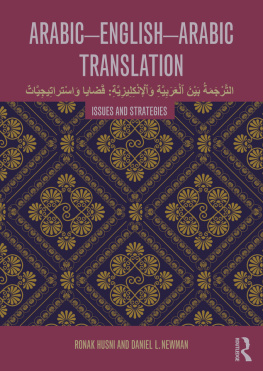
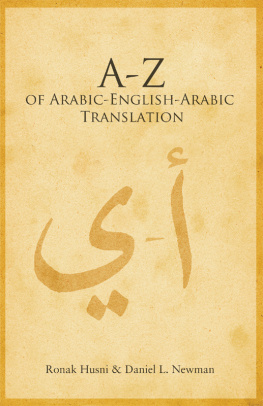
 Table of Contents
Table of Contents